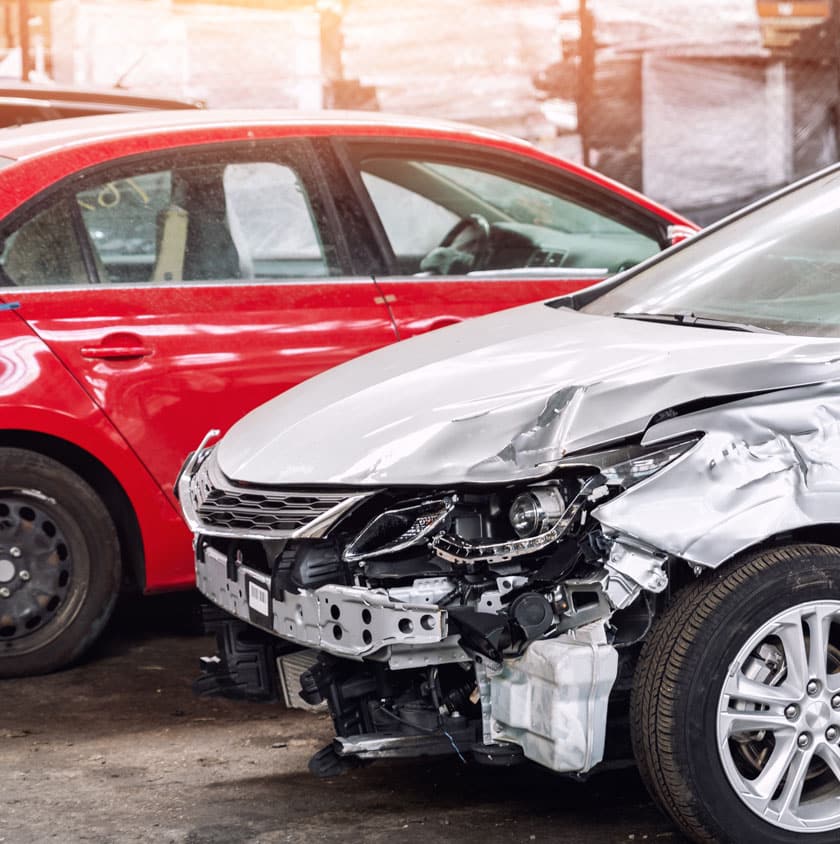
Salvage Insurance
Compare Salvage Insurance Quotes
- Complete one short form
- Quickly compare quotes
- Find a great deal today

Compare insurance quotes from top UK’s leading motor trade insurers including:
Why Compare Salvage Insurance Quotes At SimplyQuote.co.uk?
Finding a new or first-time insurance policy can be a nightmare. There is paperwork and different insurance providers, and it’s just an overall stressful situation.
However, SimplyQuote, through its partnership with Quotezone, offers a simple way to access quotes from several of the UK’s leading insurance providers for salvage insurance.
Forget about the hassle and time-consuming work of comparing quotes yourself, the comparison tool makes it stress-free, and it is also completely free!
What Do You Need To Provide To Get Salvage Insurance Quotes?
You’ll need to provide the following information to start comparing insurance quotes:
- Business details: Business name, address, type (e.g. partnership, limited company)
- Cover requirements: Any additional cover you want added to the policy
- Types of vehicles: The types of vehicles that form a part of salvage operations
- Claims history
- Security measures at business premises
- Driver information: Names and ages of any drivers who will be operating any vehicles covered by the policy.
Why Do You Need Salvage Insurance?
You need salvage insurance to ensure your business is always financially protected. Legally, a motor trade business in the UK is required to have some type of insurance in place to cover their vehicles.
If more than one staff member is employed (even part-time staff) then the business owner must legally have employers’ liability insurance, or risk paying daily fines.
Similarly, if any of the cars are driven on the road, then road risks insurance is a legal requirement.
Having the right type of cover in place ensures your business has support if there is an unforeseen problem or something goes wrong.

Looking for salvage insurance? Get a quote today!
Get QuotesWhat Does Salvage Insurance Cover?
Just like with car insurance and home insurance, each salvage insurance policy is different. However, usually, they cover driving salvaged vehicles, liability and the business premises.
Let’s discuss what is covered by salvage insurance policies in greater detail.
Road risk cover
This insurance cover is commonly included in all motor trade insurance policies, including salvage insurance.
This cover allows you (or your staff) to drive cars that are not registered to you. You can add your employees as named drivers so that they can drive the salvaged vehicles that form part of your business operations.
Liability cover
- Employers’ liability: This is legally required if you employ staff. This insurance protects you if your employee brings a claim against you, for example, if they were injured while working at the salvage yard. This insurance can cover court fees and the cost of compensation if it is awarded.
- Public liability: This cover isn’t a legal necessity, but it is quite important for businesses working with salvaged cars. It covers the cost of legal and compensation fees (which can be very expensive) if a member of the public takes your salvage business to court. For example, you can be sued if a member of the public tripped and sustained an injury at your salvage yard.
- Product liability: This insurance is also not legally required, but it is quite important for businesses working with a salvaged or written-off vehicle. It covers you if a product (i.e. vehicle) you sell is faulty or causes an accident. Even if the selling of the car or parts was done unintentionally, your business will be liable.
Protecting your salvage business
- Business premises cover: This provides insurance for your business property, like a scrap yard, salvage yard, workshop, garage and office. If any unforeseen events cause damage to your business premises, like floods, fires or vandalism, you will be covered.
- Contents cover: This insurance covers the contents that are inside your business premises. For example, any furniture, customer seating and computers will be covered.
- Equipment and tools cover: This cover especially protects specialist items like tools and equipment used to salvage vehicles. If any of your equipment or machinery is damaged or stolen, your insurance company will cover the cost of repairing or replacing it.
- Business interruption cover: This insurance covers lost income if there is an event that causes you to temporarily close your business, like a fire on site. Business interruption cover enables your salvage business to continue paying staff and bills.
What’s not covered?
- Wear and tear of equipment or salvaged vehicles.
- Deliberate damage to the business premises or any property.
- Illegal activities that result in damage or liability, like vehicle theft.
- Negligence like when reasonable caution is not taken to prevent damage or loss of property.
What Are The Four Categories Of The Vehicle Salvage Code
The different categories of the Vehicle Salvage Code, created by the Association of British Insurers, are important as they can impact the type of insurance you need, as well as the costs of securing cover.
The four categories are:
Category A
The car is beyond repair, a complete write-off, and none of the parts can be salvaged. The car should be crushed.
Category B
Some parts of the car can be salvaged, but the shell of the vehicle should be crushed.
Category S
This is not a written-off car. There is structural damage to Cat S cars, but it can be fixed. However, the repair-to-value ratio (i.e. the repair cost vs the market value) doesn’t make sense from an insurance perspective. However, the car can be repaired, resold and driven if it is made roadworthy.
Category N
The vehicle is structurally sound and can be safe to drive. There may be issues with braking, or steering, electrical components or cosmetic damage. The car can be fixed, but it might not be cost-effective from an insurance perspective. However, if made roadworthy, the car can be resold and driven.
What Add-Ons Are Available For Salvage Insurance?
Consider adding the following extras to your salvage insurance policy to enhance your cover in accordance with your salvage business’ risks and needs:
- Hazardous materials cover: If you’re handling chemicals or oils, this add-on will cover the cleanup or any liability associated with spills or accidents involving these materials.
- Environmental liability insurance: This cover protects against liabilities arising from environmental damage caused by your salvage operations, like groundwater contamination. It covers the cost of cleanup and legal fees.
- Loss of key personnel: This add-on will cover the financial losses if you lose key personnel involved in your salvage operations, like managers or technicians.
- Vehicle transportation: If your business is directly involved in transporting salvaged vehicles, you should get this cover to protect you during transit. It can include cover for owned and third-party vehicles that are being transported.
How Much Does Salvage Insurance Cost?
Salvage insurance is pricy because of the high risk of the industry, and you can expect to pay anything from £1,500 per year for smaller businesses with low-risk salvage (like scooters) to £5,000 per year for large businesses handling high-value cars (like classic cars) and storing vehicles outside.
Which factors influence the cost of salvage insurance?
- Nature of the salvage operations: A business dealing with high-value salvage, like classic cars, or hazardous materials will have higher premiums than businesses that deal with low-value vehicles.
- Location: Local crime rates and environmental risks impact premiums.
- Cover limits: The limits you choose for various aspects of your policy (like your liability cover limits) will impact your premiums. The higher your limits, the higher your premiums.
- Claims history: If you’ve frequently made claims in the past, your insurance rates will be higher.
- Business size: Larger businesses tend to cost more to insure.
- Security measures at the premises: Alarm systems, security gates and CCTV can reduce premiums.
- Voluntary excess: The more excess you’re willing to pay, the lower your premiums will be.
How Can I Get Cheaper Salvage Insurance?
There are some simple ways to reduce your premiums:
- Only purchase the insurance that you need. When it comes to salvage insurance, the most important thing is that the level of cover you take out matches your business needs. There’s no point in overpaying for additional coverage that would never be needed. Be realistic when you balance your insurance needs with your business activities.
- Improve your security measures. Install CCTV, alarms, secure locking systems, and other features to reduce the chance of theft or vandalism due to break-ins at your business premises. This will have the immediate practical benefit of deterring criminals, whilst giving your insurance company confidence that there is less risk. In turn, they will usually lower your premiums.
- Pay annually. Offer to pay your insurance in a single, annual payment rather than taking out a payment plan.
- Opt to pay a higher voluntary excess if you were to make a claim. Your insurance provider is likely to respond with lower rates.
- Compare insurance deals at SimplyQuote.co.uk. Comparing policies online is the single best way to ensure your salvage business finds the cheapest insurance deals. You can find and switch to another insurance provider that offers more competitive rates in minutes.
How To Compare Salvage Insurance Quotes At SimplyQuote.co.uk?
Quickly compare salvage insurance at SimplyQuote.co.uk in just four steps:
- Complete the online form: Provide information about your salvage business operations, locations and staff.
- Select policy add-ons: Choose how comprehensive you want your cover to be.
- Compare insurance quotes: Quickly find a quote and policy that suits your needs.
- Start saving on premiums: Find an affordable insurance policy.
Frequently Asked Questions
Salvage insurance is a type of motor trade insurance that is suitable for businesses that specialise in vehicle salvage.
- Category N replaced what was formerly Category D, which stated that a car that suffered structural damage could be fixed but the cost to do this would be more than its value.
- Category S replaced what was formerly Category C, which stated that a car could be fixed for less than its value but the likelihood was that transportation and admin fees would bring the cost up beyond the car’s value.
Related Insurance
Written by Chris Richards
Page last reviewed on 20th January 2025 by Chris Richards